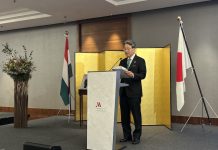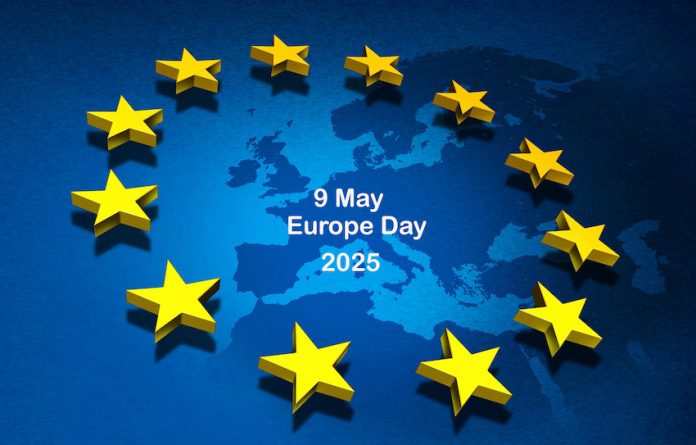Honouring the Vision that Gave Birth to the European Union
Edited by Anna Popper
On 9 May 1950, a bold and visionary proposal laid the foundations for an unprecedented experiment in peace, cooperation, and shared sovereignty across Europe. Known as the Schuman Declaration, in collaboration with Jean Monnet, this short yet historic speech delivered by French Foreign Minister Robert Schuman, in the Salon de l’Horloge, Quai d’Orsay, in Paris, marked the beginning of a new era in European history – rooted in peace, solidarity, and economic interdependence.
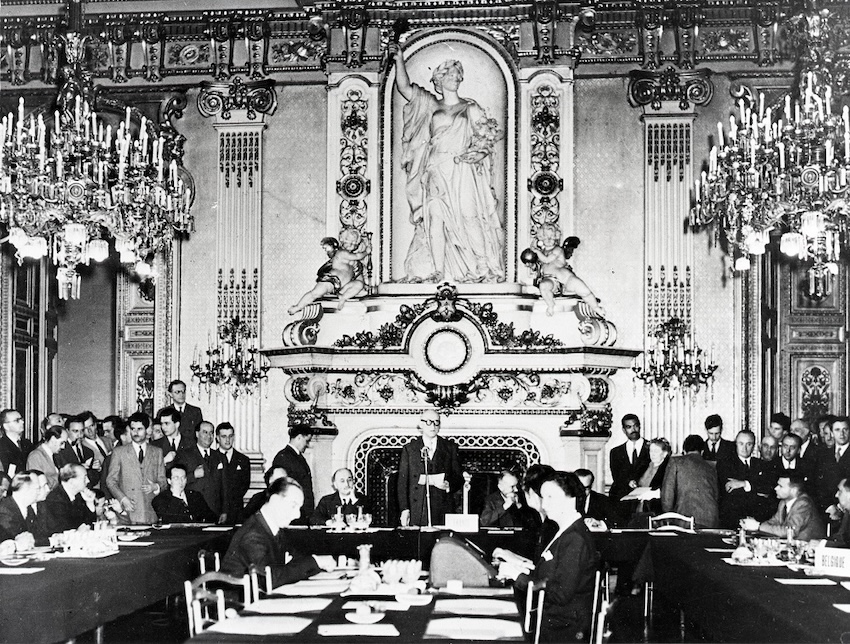
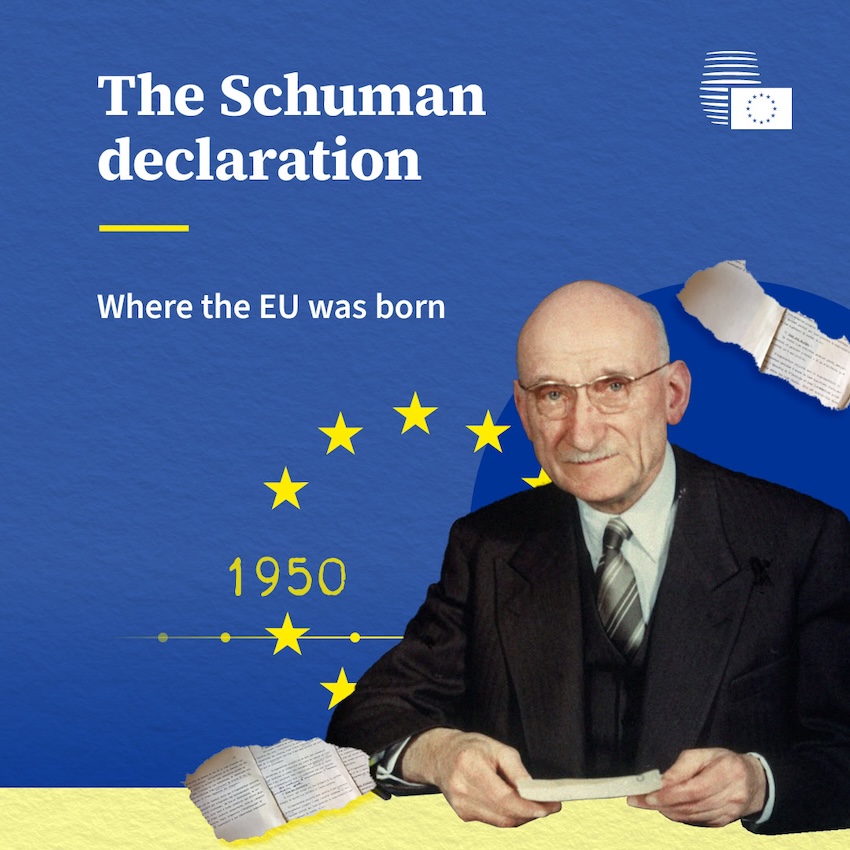
Europe Day, celebrated each year on 9 May, commemorates this transformative moment. In 2025, we mark the 75th anniversary of the Schuman Declaration – a milestone on Europe’s journey from a continent at war to a union of democratic nations.
The Birth of European Unity
In the aftermath of WWII, Europe was scarred by destruction and division. Recognizing that peace could only be achieved through integration, Schuman proposed placing the coal and steel industries – the essential foundations of military power – under a common authority. This initiative, known as the Schuman Plan, was not merely an economic proposal, but a visionary strategy to make war between European nations “not only unthinkable but materially impossible”.
The plan led to the creation of the European Coal and Steel Community (ECSC) in 1951, signed by six founding countries: France, West Germany, Italy, Belgium, the Netherlands, and Luxembourg (the Inner Six). It was the first institutional step toward the European Union as we know it today.
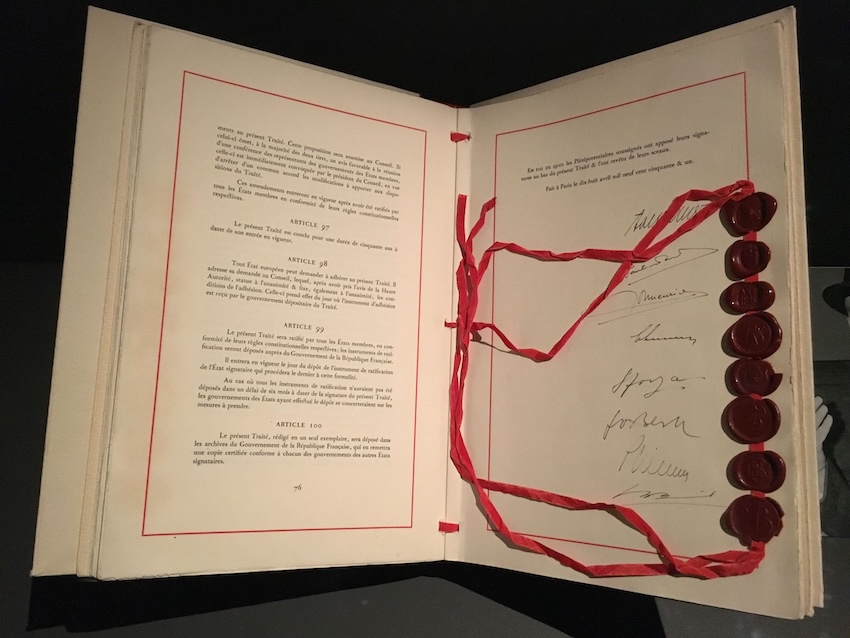
A Lasting Legacy of Peace and Solidarity
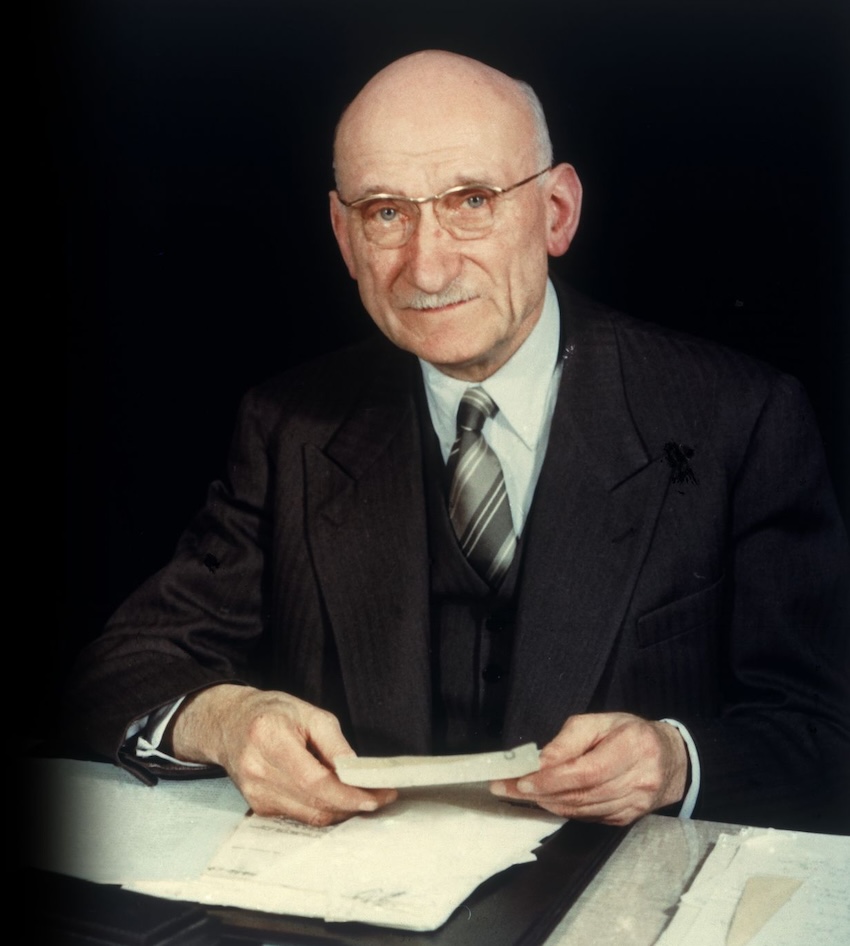
Robert Schuman’s declaration was clear in its philosophy: “Europe will not be made all at once, or according to a single plan. It will be built through concrete achievements which first create a de facto solidarity.”
This vision of gradual integration through shared interests laid the foundation for the institutions and values of today’s European Union, now comprising 27 member states. Together, these countries uphold democratic governance, human rights, the rule of law, and economic cooperation.
A Message for the Present and the Future
As we commemorate 75 years since the Schuman Declaration, we celebrate the achievements of a Union that emerged from the ashes of war, transformed rivalries into partnerships, and became a global symbol of peaceful cooperation.
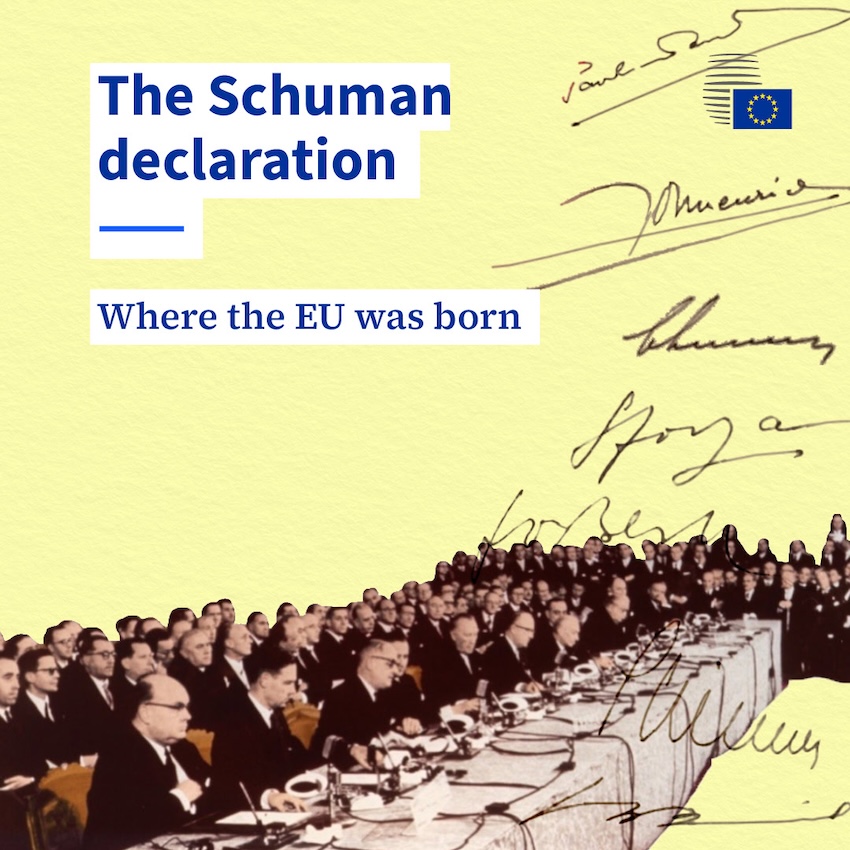
Yet this anniversary is not only a moment of reflection – it is a call to action.
In a time of climate challenges, digital transformation, geopolitical shifts, and global instability, the spirit of Schuman’s message remains urgent and relevant.
Europe Day 2025 reminds us that the values of peace, solidarity, and cooperation are not historical relics – they are living principles that must be renewed and protected for the future.
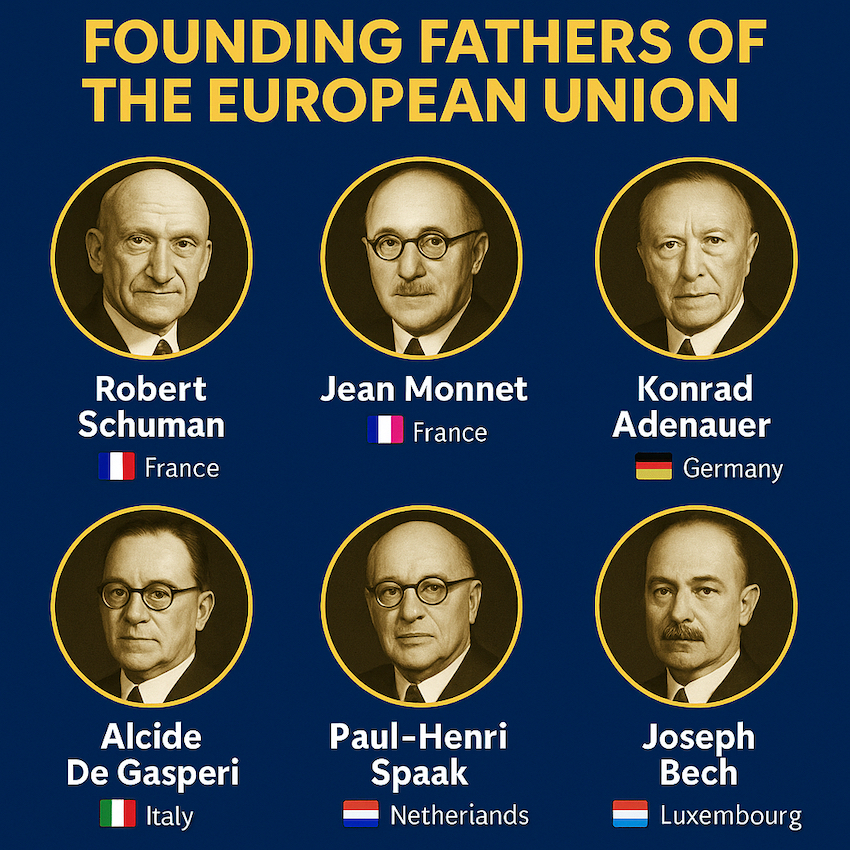
On the occasion of the 75th anniversary of the birth of European Unity, we pay tribute to the Founding Fathers of the European Union:
🇫🇷 Robert Schuman (France) – French Foreign Minister
Architect of the Schuman Declaration (9 May 1950); Proposed pooling coal and steel production between France and Germany; Considered as the symbolic “Father of the European Union”
🇫🇷 Jean Monnet (France) – Diplomat and economic advisor
Main architect behind the Schuman Plan; First President of the High Authority of the European Coal and Steel Community; Believed in gradual economic integration leading to political unity
🇩🇪 Konrad Adenauer (Germany) – First Chancellor of West Germany
Committed to reconciliation with France; Supported European integration to ensure peace and rebuild Germany’s global standing
🇮🇹 Alcide De Gasperi (Italy) – Prime Minister and Foreign Minister of Italy
Promoted democracy and integration in post-fascist Italy; Strong advocate for European unity and a federal Europe
🇧🇪 Paul-Henri Spaak (Belgium) – Belgian Prime Minister and Foreign Minister
Played a major role in founding NATO and later the European Economic Community; Chaired the Spaak Committee, which led to the Treaty of Rome (1957)
🇳🇱 Johan Willem Beyen (Netherlands) – Dutch Foreign Minister
Proposed the idea of a common European market; Instrumental in forming the European Economic Community
🇱🇺 Joseph Bech (Luxembourg) – Prime Minister and Foreign Minister of Luxembourg
Promoted Benelux cooperation and helped prepare the path toward broader European integration
These great leaders came from different countries and backgrounds, but shared a common vision that only a united Europe could guarantee peace, stability, and prosperity on the continent.

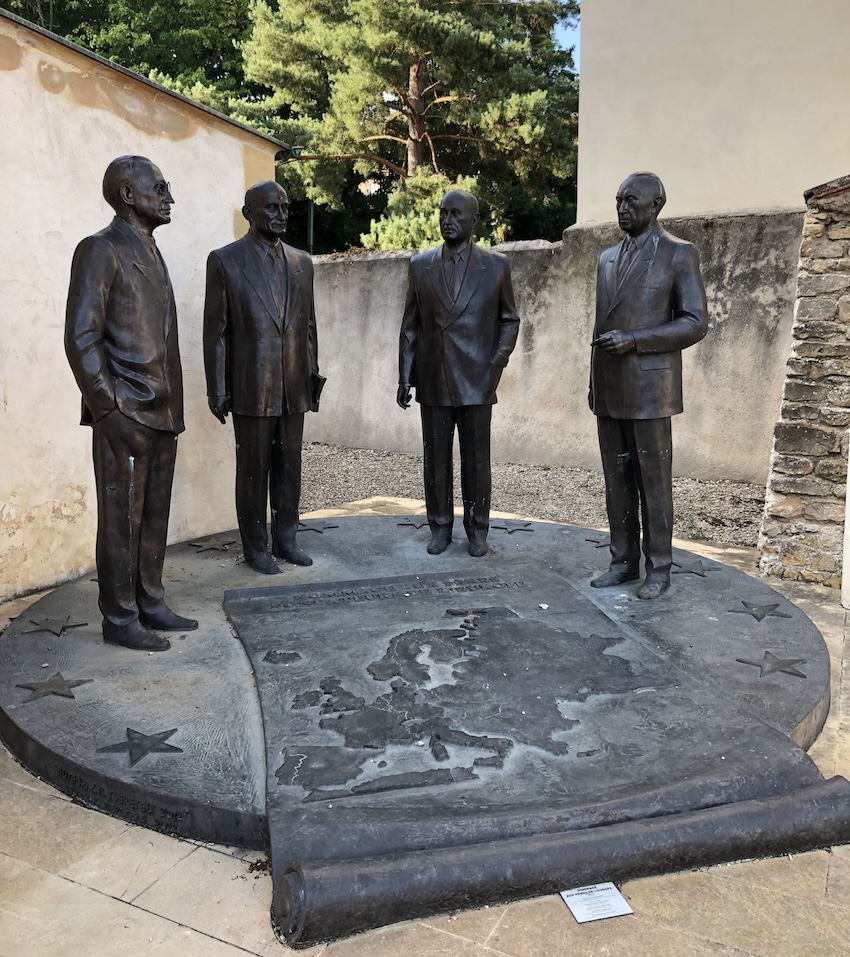
Long live the European Union – may it continue to thrive in peace, unity, and shared prosperity.

Source: European Union – www.cosilium.europa.eu
Photos from European Union – www.cosilium.europa.eu

